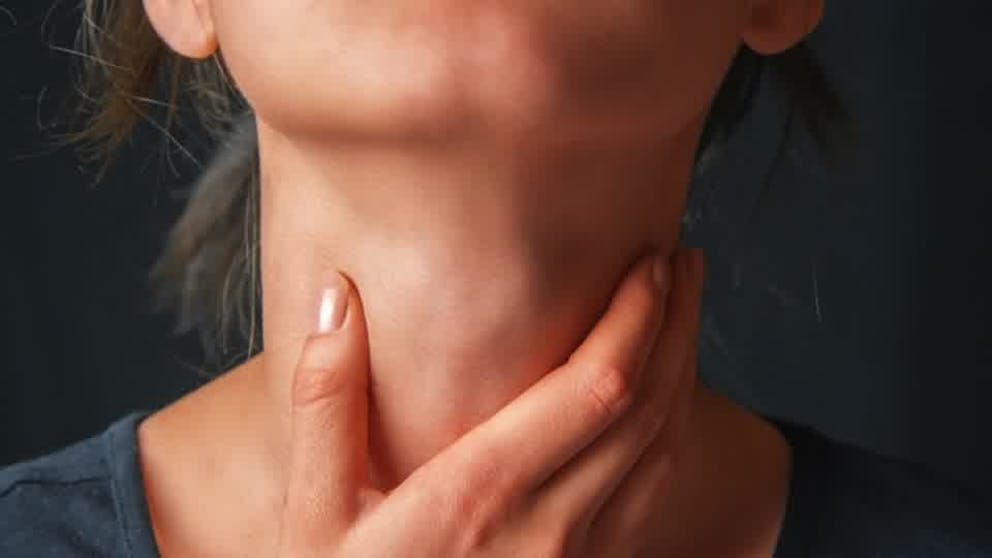The Best Hypothyroid Supplements
Dealing with hypothyroidism can be exhausting. You're constantly tired, your metabolism feels sluggish, and even with medication, things might not be improving.
Many people consider supplements for thyroid support to find additional relief. But how do you know which supplements could truly help?
This exploration of hypothyroid supplements goes beyond basic overviews. We’ll get to the core of how to potentially give your thyroid what it needs.
We’ll work together to decipher some root causes and discover how improving certain bodily functions may support healthy thyroid function.
Understanding the Root of the Issue
Before discussing hypothyroid supplements, let’s think about how they relate to your body’s mechanisms.
Hypothyroidism isn't always directly caused by the thyroid itself. Other bodily processes often contribute, and understanding these could be a turning point in your thyroid health journey.
Bile Production and Thyroid Conversion
Bile, the digestive juice created by your liver, has an important relationship with thyroid function. It breaks down fats so you can absorb important nutrients.
These nutrients fuel your metabolism, influencing how well the inactive thyroid hormone (T4) converts to its active form (T3). Poor fat digestion may influence this conversion process.
What happens if your liver doesn't produce enough bile? It may cause bloating, nausea, and perhaps shoulder pain, along with disrupting T4-to-T3 conversion.
T3 is responsible for most thyroid hormone actions, thus potentially triggering those classic hypothyroid symptoms. These symptoms can include persistent fatigue and weight gain.
Even if you take medication or other supplements, if this bile issue persists, your body isn't utilizing that crucial T3. Bile is critical for thyroid health.
Estrogen Dominance
Hormonal imbalances also play a crucial role in hypothyroid cases. High estrogen levels may cause estrogen dominance, which can directly interfere with healthy thyroid function.
This can impact how the thyroid operates, eventually creating symptoms similar to hypothyroidism. If this imbalance occurs, what are the signs of estrogen dominance to be on the lookout for?
Learn more about high estrogen, but some common signs might include irregular periods, mood changes, breast tenderness, low libido, fatigue, or brain fog.
Other symptoms might include skin conditions and trouble sleeping. High estrogen isn't solely for women.
Men may also experience it, though it becomes less prevalent as they get older, while women experience a sharp decline.

Hypothyroid Supplements: Targeting Root Causes
While it might seem natural to seek out supplements that directly target the thyroid, a holistic approach might benefit you more.
Many people taking medication experience lingering tiredness and challenges with excess weight.
These symptoms can persist, along with many others. Consider starting by tackling the potential underlying issues by improving bile flow and ensuring estrogen balance.
This approach addresses the root of the problem rather than just the symptoms.
Supporting Bile Flow
As previously stated, optimal bile production directly influences converting inactive T4 into usable T3 thyroid hormone.
This could improve overall thyroid functionality without directly intervening in the thyroid. If your bile flow is disrupted, supplements focusing solely on the thyroid itself may not provide much relief.
Many thyroid supplements, even over-the-counter solutions, are synthetic or modified. Over time, these can create unwanted tolerance levels where more becomes required, or they can produce unwanted side-effects.
Natural sources of bile can give that extra boost. Beet greens, for instance, are rich in betaine, a natural digestive compound supporting healthy bile and liver processes.
Balancing Estrogen
Supporting healthy ovarian function and estrogen levels may positively influence thyroid hormone production.
Consider nutrients such as DIM and calcium-D-glucarate found in a variety of cruciferous vegetables.
Some supplements can improve ovarian function without being specifically marketed as “thyroid” formulas. DIM and calcium-d-glucarate work to flush excess estrogen in a safe way.
This leaves adequate estrogen when needed while helping detoxify harmful estrogen.
Lifestyle Choices that Support Thyroid Health
Adding good lifestyle habits is crucial. Combining this with proper supplementation provides further foundational support for your entire system.
The Role of Diet
Your liver health thrives when you eat cruciferous veggies, such as Brussels sprouts, kale, or broccoli.
As noted above, these are especially important when considering DIM or calcium-d-glucarate as potential estrogen-supporting tools.
Additionally, high-fiber and protein-rich foods combined with a low-glycemic-impact eating style (keto or intermittent fasting) may minimize digestive and blood sugar challenges.
These are often seen in thyroid conditions. Research confirms this relationship, as shown in a 2022 article in a medical journal on PubMed.
This dietary advice helps ensure overall nutrition without adding much extra demand on a sluggish thyroid.
Focusing on the source and quality of food may add vital vitamins and minerals that are often missing in modern farming practices.
These practices often use synthetic fertilizers and pesticides or lack soil nutrition, leading to nutrient deficiencies.

Stress Management and Sleep Quality
Don't minimize the role of mental and physical recovery. High-stress levels burden both the thyroid and adrenals. This can cause disruption and fatigue that mimic or worsen an underactive thyroid.
Sleep disruption increases this impact, creating a cycle of poor hormone conversion, inflammation, and thyroid issues.
Stress-reducing techniques, quality sleep, exercise, and hydration offer comprehensive care, giving space to heal from hormonal disruptions often common with hypothyroidism.
This combined approach can greatly improve thyroid issues.
Key Nutrients to Support Thyroid Function
For individuals with hypothyroidism, targeted supplementation can play a vital role in improving thyroid health.
Essential nutrients such as selenium, zinc, and iodine help optimize hormone production and support overall metabolic function.
Those following specific dietary approaches, like keto, may need to pay extra attention to their nutrient intake to ensure thyroid health is not compromised.
When managing keto and hypothyroidism, incorporating supplements that address potential deficiencies, such as magnesium or omega-3 fatty acids, can enhance energy levels and support hormonal balance.
A tailored supplementation strategy can complement dietary choices for better thyroid function and overall well-being.
Conclusion
Choosing the right hypothyroid supplements can feel overwhelming. Many are marketed for direct thyroid support but often fail to address the bigger picture and the interconnectedness of organ functions.
A better approach involves understanding underlying issues like inadequate bile flow and the role of estrogen balance on thyroid function.
These insights, combined with positive lifestyle adjustments, including nutrient-rich meals, restorative sleep, and mental recovery techniques, offer comprehensive support.
This holistic approach aims not merely to treat symptoms but to address potential deeper issues to properly support your well-being and achieve lasting thyroid health.
Consider implementing these strategies to take control of your thyroid health and improve your overall quality of life.
Focus on the root causes and make sustainable changes for lasting relief and improved wellness.
FAQs about hypothyroid supplements
How can I boost my underactive thyroid naturally?
Along with certain supplements, improving liver health is one potential avenue for boosting thyroid health naturally.
Prioritizing bile flow by using natural approaches like beet greens can aid digestion. Focusing on a nutritious diet, stress management, and restorative sleep is also beneficial.
Which vitamin is not good for hypothyroidism?
Supplements for hypothyroidism shouldn’t contain high doses of iron. A 2023 article on PubMed discussed that iron interferes with proper thyroid function by affecting critical liver pathways used to manage hormones.
Excessive iron can disrupt these pathways and impact thyroid health.
How to lose 20 pounds with hypothyroidism?
Losing weight with hypothyroidism may begin with understanding any potential imbalances and supporting your system holistically.
Addressing root issues like high estrogen and low T3 conversion while ensuring appropriate levels is important.
This, followed by appropriate lifestyle and nutritional changes (high fiber, protein-rich diet, and proper portion control), along with select supplements, may be beneficial in weight management.
Focus on gradual changes to avoid overwhelming your system. Remember, weight management is connected to your energy levels and many symptoms associated with thyroid health.
Implement changes incrementally to allow for positive shifts in one area before adding more complexity.
Is there an over-the-counter treatment for hypothyroidism?
While over-the-counter supplements may seem to temporarily alleviate thyroid-like issues, their direct action on the gland may have the opposite effect long-term.
This is because they can mimic the body's hormone production without proper signaling from the hypothalamus.
This can disrupt the endocrine system's natural balance and lead to increased medication needs over time.
Instead of directly targeting the thyroid, focusing on supporting surrounding organs or root causes may create more sustainable changes.
Learn more about thyroid-related issues. This approach stimulates the body's natural processes rather than overriding them with external support.
Previous blog
A Better Strategy for Weight LossNext blog
The Thyroid Estrogen ConnectionTags

Popular
08/21/2024
54.3K views
02/23/2025
45.8K views
11/18/2024
273.7K views
03/18/2024
11/21/2022




